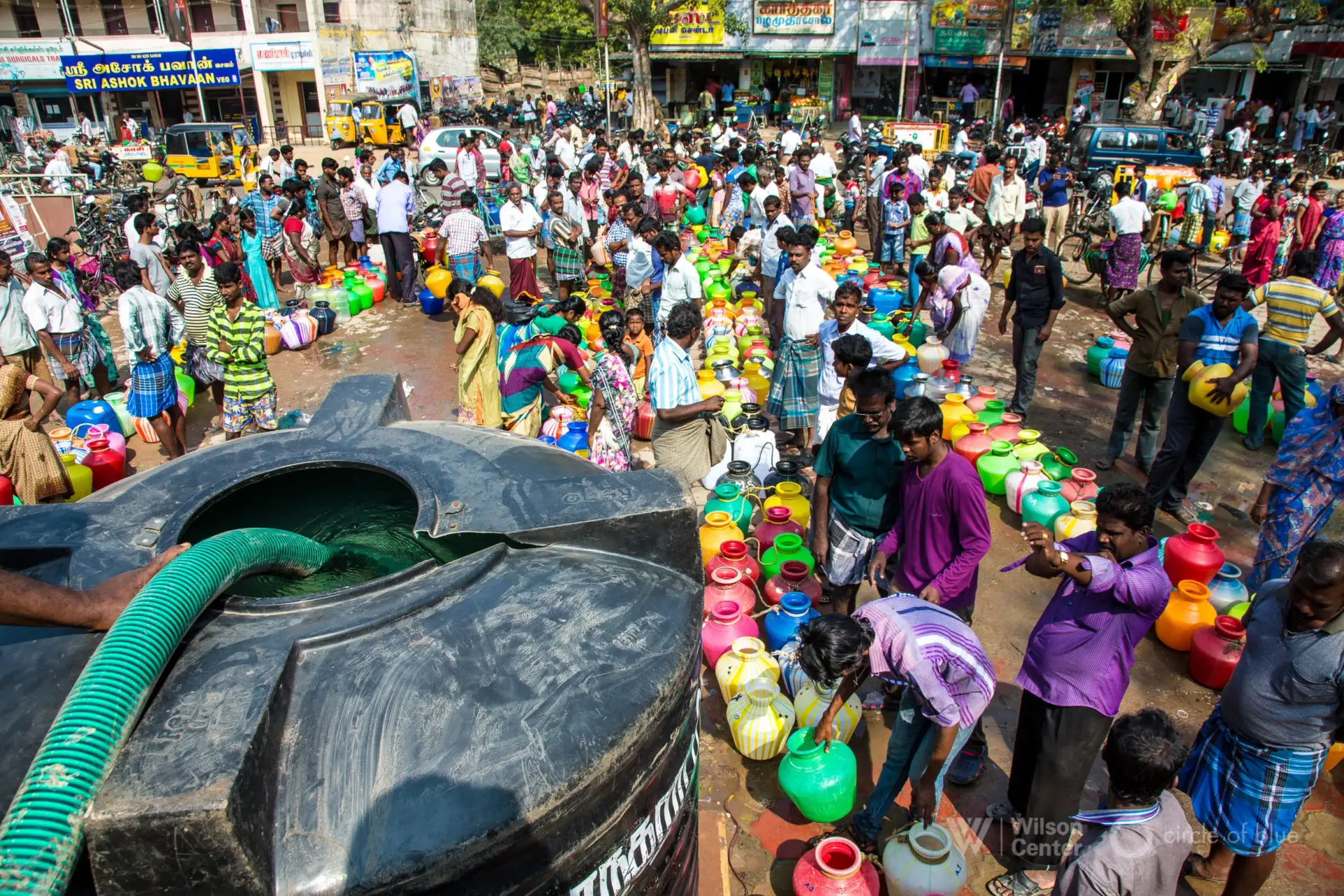Chennai residents are grappling with an escalating water crisis as delays in the maintenance of the Nemmeli desalination plant continue to disrupt water supply across several parts of the city. The plant, which supplies 110 million litres per day (MLD) of potable water, was scheduled for routine maintenance from March 21 to 26.
However, as the maintenance period extends beyond the deadline, thousands of households are facing severe water shortages, forcing many to rely on costly private water suppliers. The City and Industrial Development Corporation (Cidco) and Metrowater had announced the planned shutdown to carry out essential maintenance work. The original plan included supplying water on alternate days to affected areas under zones 13, 14, and 15, including Thiruvanmiyur, Kottivakkam, Perungudi, Palavakkam, Vettuvankeni, Karapakkam, Okkiam Thoraipakkam, Neelankarai, Sholinganallur, Uthandi, and Injambakkam. However, despite assurances, the maintenance remains incomplete weeks after the announced deadline. The situation has worsened in other parts of South Chennai, including Kotturpuram, Saligramam, and Adyar, where residents have been without a consistent water supply for weeks. “We are forced to spend between ₹4,000 to ₹6,000 every month to buy water from private lorries. It’s financially draining, especially for families with limited income,” said a resident from Adyar, expressing frustration over the lack of timely intervention.
The crisis is not limited to South Chennai. In North Chennai, areas depending on the Minjur desalination plant are also facing severe water shortages. The plant has been non-operational since November 2024 due to unresolved technical issues, leaving newly added corporation zones such as Manali, Madhavaram, and Thiruvottiyur struggling to secure adequate water supply. Some parts receive water from the Puzhal reservoir, but the supply remains inconsistent. A resident from Lakshmipuram in Kolathur said, “For the past two weeks, no water has been supplied to our street. We are a family of six and depend entirely on Metrowater. Buying bottled water daily is unaffordable, and the government must intervene immediately.” Despite widespread complaints from residents, a Metrowater official claimed that the city is not facing a water shortage. “We have more than 11 TMC ft of water in reservoirs, which is sufficient for the next ten months. The maintenance work at the Nemmeli plant is nearly complete, and operations will resume shortly,” the official assured. However, this assurance has done little to ease the frustrations of residents who are enduring daily hardships due to the lack of a reliable water supply.
The delay in maintenance work has exposed the city’s vulnerability in managing its water resources, raising questions about the efficiency of scheduled maintenance, infrastructure resilience, and crisis management. Experts suggest that the situation highlights the need for more robust water management strategies, including the diversification of water sources, regular infrastructure audits, and timely completion of maintenance activities. “Chennai’s water supply system relies heavily on desalination plants and reservoirs. Delays in maintenance or operational issues at any of these facilities can have far-reaching consequences,” said an urban infrastructure expert. The ongoing crisis also underscores the urgency of implementing sustainable and eco-friendly water management practices. With climate change affecting water availability globally, cities like Chennai must adopt measures such as rainwater harvesting, groundwater recharge, and wastewater recycling to enhance resilience. Meanwhile, residents continue to face daily challenges, with many forced to adapt to the new reality. Some have started forming community groups to collectively manage water distribution and negotiate with private water suppliers for better rates. Others have resorted to sourcing water from distant wells and borewells, though these sources are often unreliable and pose health risks.
The situation has also raised concerns about gender equity, as women and girls are disproportionately affected by water scarcity. In many households, it is primarily women who are responsible for fetching water, and the current crisis has significantly increased their workload, adding to their physical and mental stress. As Chennai battles this water crisis, the need for immediate government intervention, long-term infrastructure improvements, and sustainable water management practices has never been more critical. The city’s experience serves as a stark reminder of the importance of resilient urban planning and the need to prioritise water security in the face of growing environmental and demographic challenges.


